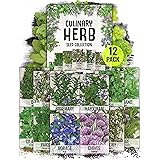Best Choice Products 8x4x2ft Outdoor Metal Raised Garden Bed, Deep Root Planter Box for Vegetables, Flowers, Herbs, and Succulents w/ 478 Gallon Capacity - Gray
33% OffMIXC Wooden Raised Garden Bed with Legs, 48”L X 24”W, Elevated Reinforced Large Planter Box for Vegetable Flower Herb Outdoors - Beam and Column Structure - Unmatched Strength Outlast
11% OffOrganic gardening is a fulfilling hobby that can provide you with fresh, healthy produce while also promoting sustainability and environmental consciousness. In this blog post, we will explore the benefits of growing your own food, how to start an organic garden, tips for successful organic gardening, common mistakes in organic gardening and how to avoid them, and why you should consider organic gardening.
Introduction to Organic Gardening
Organic gardening involves growing plants without the use of synthetic fertilizers or pesticides. Instead, natural methods such as composting, crop rotation, and companion planting are used to maintain soil fertility and control pests. By using these techniques, you can grow healthy crops while minimizing negative impacts on the environment.
The Benefits of Growing Your Own Food
There are many reasons why people choose to grow their own food. Here are just a few benefits:
Freshness: When you grow your own food, you know exactly when it was picked and how it was grown. This means that you can enjoy produce that is fresher than anything you could buy at the store.
Nutrition: Many people believe that home-grown produce is more nutritious than conventionally produced fruits and vegetables. This may be because organically grown produce is not sprayed with chemicals, which can affect the quality of the soil and ultimately the nutrient content of the food.
Sustainability: Organic gardening is inherently sustainable because it focuses on building healthy soils and reducing waste. By composting kitchen scraps and yard trimmings, you can create rich soil that will nourish your plants year after year.
How to Start an Organic Garden
Starting an organic garden is easy! Here are some basic steps to get started:
1. Choose a location: Select an area of your yard or garden where there is plenty of sunlight and good drainage. If you don’t have much space, consider container gardening.
2. Prepare the soil: Remove any weeds or debris from the site and then add compost or other organic matter to enrich the soil. You can also use a tiller or shovel to loosen up the soil.
3. Plant your seeds or seedlings: Depending on what you want to grow, you may need to start with seeds or small plants. Follow the instructions on the packaging carefully and give each plant enough room to grow.
4. Water regularly: Keep your plants well watered but avoid overwatering, which can lead to root rot. Use a rain gauge to track how much precipitation your garden receives and adjust your watering schedule accordingly.
Tips for Successful Organic Gardening
Here are some tips to help you succeed in your organic garden:
1. Practice good sanitation: Keep your garden clean by removing dead leaves and branches, which can harbor pests and diseases.
2. Rotate your crops: Don’t grow the same type of plant in the same spot year after year. This can lead to soil depletion and increased susceptibility to pests and disease.
3. Use companion planting: Interplant different types of plants that benefit each other, such as marigolds and tomatoes. Marigold flowers repel certain insects while tomato plants attract beneficial predators like ladybugs.
Common Mistakes in Organic Gardening and How to Avoid Them
Even experienced gardeners make mistakes sometimes. Here are some common ones and how to prevent them:
1. Overwatering: As mentioned earlier, overwatering can cause root rot. Make sure to follow recommended watering schedules and use a rain gauge to monitor rainfall.
2. Underfeeding: Plants need nutrients to grow, so if you don’t feed them properly they won’t thrive. Use organic fertilizer or compost tea to supplement your plants’ diet.
3. Ignoring pest problems: It’s tempting to ignore pests, but left unchecked they can wreak havoc on your garden. Try using natural remedies like neem oil or garlic spray before resorting to harsh chemicals.

Conclusion: Why You Should Consider Organic Gardening
Organic gardening offers numerous benefits, including better taste, improved nutrition, sustainability, and reduced exposure to harmful chemicals. With a little effort and attention, anyone can start their own organic garden and reap the rewards of homegrown produce. So why not give it a try?















































